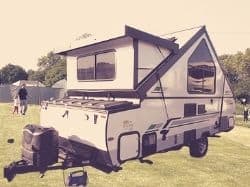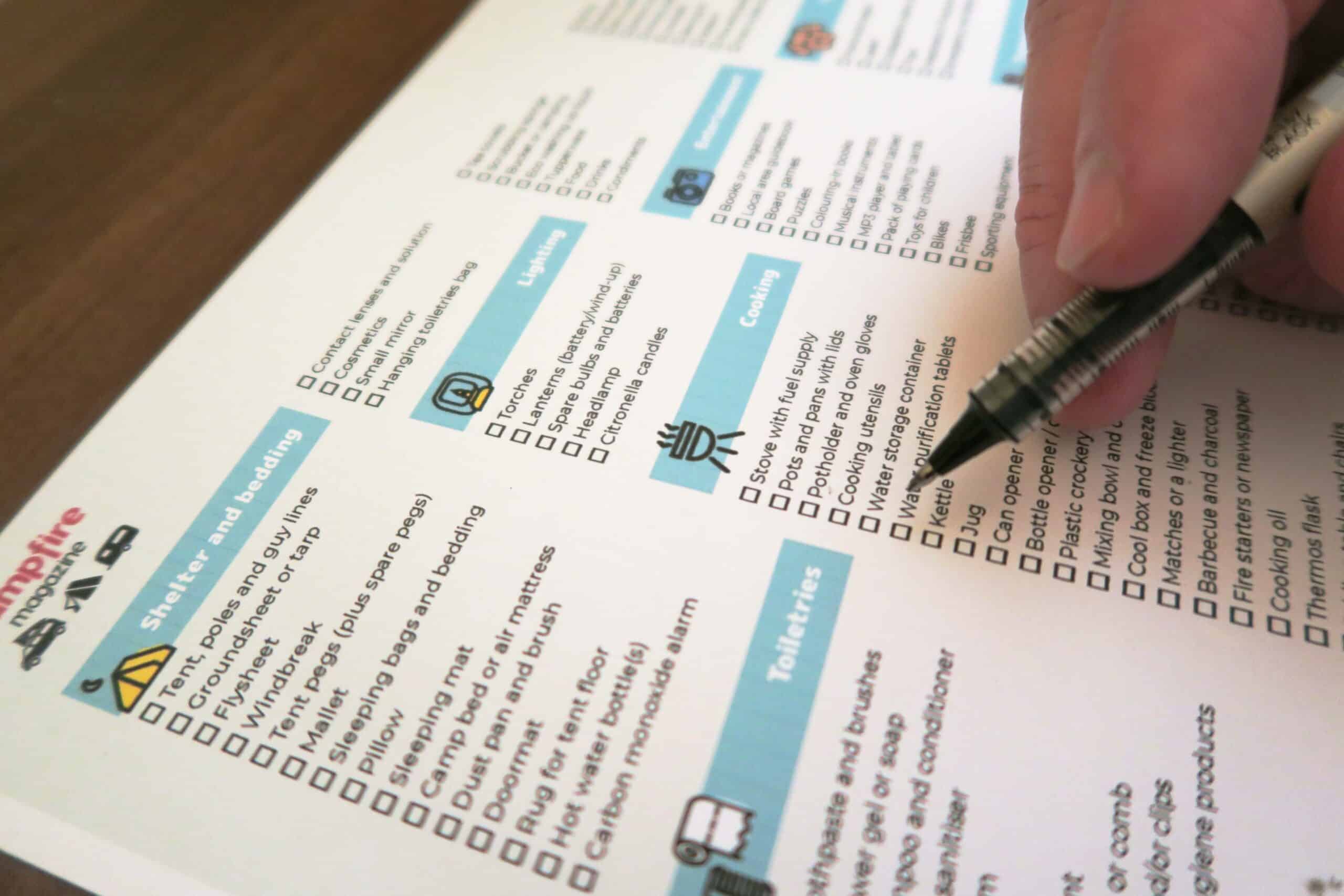If you’re into camping, you don’t always have to go for a tent. There are many other types of outdoor accommodation. One of the first things you should think about when choosing your accommodation is whether it will suit your needs. But without knowing the pros and cons of each type, this can be challenging.
A hard-sided pop-up camper is a common and reliable form of camping accommodation and a lot of people find themselves considering becoming the proud owners of one. But before you commit to anything, it is important to factor in the advantages and disadvantages of these products to find out if they are right for you.
In this article, we are going to be looking at 7 pros and cons of owning a hard-sided pop-up camper, by the end, you will know whether this will be a good investment for your next camping adventure.
Table of Contents
What Is A Hard-Sided Pop-Up Camper?
A hard-sided pop-up camper is a type of outdoor accommodation that can be towed by your car or other vehicle.
Unlike trailer tents, the hard-sided version is typically made from materials like fibreglass and steel. They come in all shapes and sizes from very small models with an A-frame design to those that are much larger and suited to family camping.
The Pros And Cons Of Hard-Sided Pop-Up Campers
If you’ve decided to move away from tent-sided accommodation but do not want to go full RV, then a hard-sided pop-up camper is a great middle ground. Let’s take a look at the good and bad points.
Pros
Pro – Suitable For All Weather
One of the huge drawbacks of a traditional tent is that they are typically designed for warmer nights, although you can get those that are designed for colder weather.
However, a hard-sided pop-up camper is much more resilient when it comes to cold, wet or windy weather.
If you are camping in a tent and the heavens open, you may be forced to pack up and go home, if the rain is heavy enough. Alternatively, you could stay put but you will have the challenge of having to dry your tent, which in some cases can take a long time.
With a hard-sided camper, the solid materials mean that the rain will simply roll off. They are also excellent in windy conditions since they will not blow over or become potentially damaged when pitched in a gale.
If the temperature drops, you will be much warmer in a hard-sided pop-up camper as opposed to a tent since the walls will retain heat and provide better insulation. Furthermore, when it is hot, the inside will be much cooler. If you’re looking for something you can camp in all year round, a hard-sided pop-up should be a consideration.
Pro – They Are Easy To Set Up
If you have ever attempted to set up up a tent, you will know that there are quite a lot of things to do and it can be somewhat of a tricky process. However, a hard-sided pop-up camper is much easier to set up.
Many people are under the false impression that they would be more difficult than their tent-sided counterparts but the opposite is true. In many cases, these camping accommodations can be up and ready in fifteen minutes. This makes them excellent for impromptu stop-offs.
The hard-sided camper is erected by released locks and putting up the frame. Inside, you will need to get the windows, doors and other components ready but this rarely takes much time.
When you are ready to head home, taking the camper down is just as easy as putting it up. This gives you more time to enjoy your camping break rather than having to worry about packing away.
Pro – Affordable
If you have ever thought about investing in a Campervan, you may have been put off by the eye-watering price. Some of these vehicles can cost hundreds of thousands of pounds if you want a luxury version. But even the more ‘affordable’ ones are still selling in excess of £20,000.
This is a good investment if you are planning to spend a lot of time on the road but for those who will take just a couple of camping trips a year, this might not be wise. However, a hard-sided pop-up camper costs just a fraction of an RV with some selling for less than £1000. There are, of course, more high-end models but you still wouldn’t be anywhere near that ballpark of a Camper.
Furthermore, provided you take good care of your equipment, many people successfully sell on their campers once they are finished, so you could stand to make some of your money back.
Pro – They Are Durable
While we always advocate camping in a tent because of the unique experience, there is no denying that this type of accommodation is prone to damage. It doesn’t take much for a tent to become torn or ripped, especially in bad weather conditions.
But since hard-sided pop-up campers are made from much more durable materials, you can expect them to last a lot longer without sustaining damage.
They are normally made from fibreglass and various steel components, both of which are extremely robust materials. But what’s more, is that these materials are lightweight. This means that the trailer will be easy to tow and very fuel-efficient.
Furthermore, this design gives the hard-sided camper a greater degree of stability compared to a tent-sided camper. This is beneficial both when you are on the road and when static.
Cons
Con – Less Headroom
If you are particularly tall, you may find yourself spending a lot of time hunched over inside your hard-sided camper. This is because, compared to other types of accommodation, the headspace is very limited.
Most of these campers come in an A-frame design, although there are those with flat roofs but these tend to be much bigger and expensive. In the middle of the camper, you will have more room but at either end, things can get a little cramped.
What’s more, for taller people, the bed space may be too limited and you could find that getting a decent night’s sleep is anything but possible.
While this might be OK if you are looking for an affordable solution for short, infrequent camping trips, people who want to go on lengthier adventures might be better with a more spacious type of accommodation.
Con – More Difficult To Store
If you own a tent, and we are talking about a regular tent, not a tent-sided pop-up, then you will know how easy they are to store. But even a tent-sided pop-up is easy compared to their hard-sided counterparts.
Once your camping trip is over, you will need to find somewhere to keep your camper. If you have a generous amount of outdoor space, then this won’t be a problem. But for most people, a small driveway can often be a luxury and this is often taken up by your car.
Furthermore, you may not want a camper sitting outside your home. While they are excellent for adventures, they can also be something on an eyesore.
For this reason, a lot of people end up hiring some sort of storage space and this can become costly.
Con – Limited Facilities
The beauty of owning a full-sized Campervan is that you have everything you need inside; it’s pretty much just a home away from home. However, if you love your creature comforts, you may find that a hard-sided camper doesn’t quite live up to your expectations.
This type of accommodation is typically just somewhere to sleep and shelter from the elements. While this is excellent for encouraging you to get outside, you won’t have the advantage of a bathroom, toilet or very much storage.
There are some larger hard-sided campers that have a toilet but the price of these is far higher than the basic models so you must consider whether you want to make that kind of investment. We wrote a handy little guide should you have difficulty deciding wether you are a campervan or caravan type person
Conclusion
A hard-sided pop-up camper is a great middle-ground for those who do not like the idea of roughing it in a tent but do not want to fork out the thousands it can cost for a Campervan or RV.
They are durable, weather-proof and as far as outdoor living goes, pretty comfortable. That is unless you are very tall, in which case, you may find them not roomy enough.
Hard-sided campers can be difficult to store but they are also incredibly easy to put up and take down making them ideal for shorter camping trips.
Much like anything, there are good and bad aspects of this type of accommodation and ultimately, you must decide which outweigh which.


